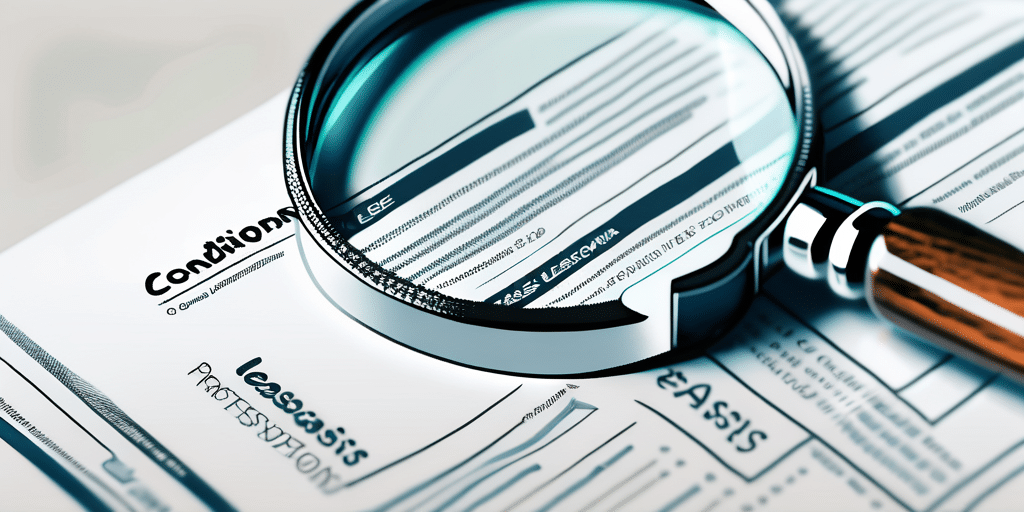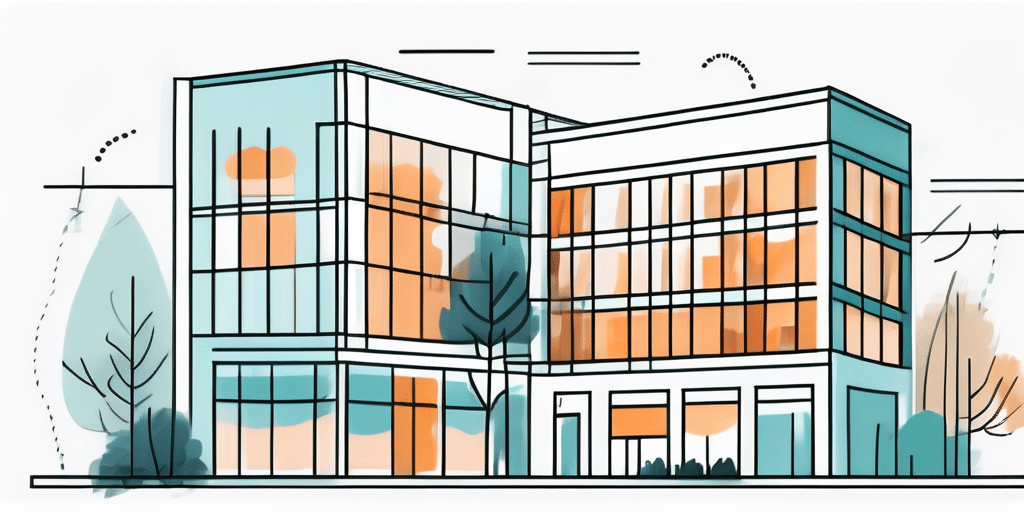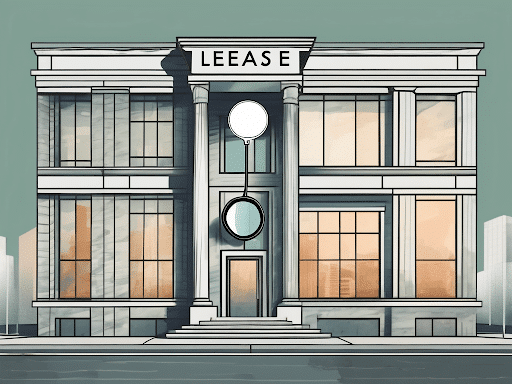Understanding Commercial Leases
When it comes to leasing commercial space for your business, it is essential to have a thorough understanding of the terms and conditions of the lease agreement. Ignorance of these terms can lead to unexpected expenses and legal complications down the line. In this article, we will explore seven key terms that every business owner must understand before signing a commercial lease.

The Importance of Commercial Lease Terms
The terms of a commercial lease dictate the rights and responsibilities of both the tenant and the landlord. These terms cover various aspects of the lease, including rent, lease duration, maintenance responsibilities, insurance requirements, and termination clauses. Understanding these terms will help you make informed decisions and protect your interests as a tenant.
Common Misconceptions About Commercial Leases
Before delving into the specific terms of a commercial lease, let’s address some common misconceptions that business owners may have. One misconception is that lease terms are standard and cannot be negotiated. Another misconception is that landlords are solely responsible for maintenance and repairs. By debunking these myths, you can approach your lease negotiation with confidence and clarity.
It’s crucial to recognize that commercial leases are highly negotiable documents. While some landlords may present a standard lease agreement, there is often room for negotiation on key terms such as rent increases, subleasing rights, and renewal options. Business owners should not hesitate to propose modifications to the lease that better align with their needs and financial capabilities.
Furthermore, understanding the concept of “triple net leases” is essential for tenants entering into commercial lease agreements. In a triple net lease, tenants are responsible for not only the base rent but also additional expenses such as property taxes, insurance, and maintenance costs. This type of lease shifts more financial burden onto the tenant compared to a gross lease, where the landlord typically covers these additional expenses. Being aware of the differences between these lease structures can help tenants anticipate their financial obligations accurately.
Key Terms in Commercial Leases
Term 1: Rent and Rent Increases
The most basic yet crucial term in any commercial lease is the rent payment. It is necessary to understand how the rent is calculated, when it is due, and any potential rent increases over the lease term. Some leases have fixed rent, while others have escalation clauses that allow for periodic increases based on factors like inflation or market conditions.

When negotiating rent increases, it is important to consider the impact on your business’s financial stability. You may want to include provisions that limit the percentage of rent increase or require advance notice for any changes. This will provide you with a level of predictability and allow you to plan your budget accordingly.
Term 2: Lease Duration and Renewal Options
The lease duration determines how long you can occupy the premises. It is critical to negotiate a lease term that aligns with your business goals and allows for future growth or relocation. Additionally, pay attention to renewal options, as they give you the opportunity to extend your lease beyond the initial term.
When considering lease duration, think about the potential for expansion or downsizing. It may be beneficial to negotiate a shorter initial term with options for renewal, giving you the flexibility to adjust your space requirements as your business evolves. This will save you from the hassle of searching for a new location if your needs change.
Term 3: Tenant Improvements and Allowances
Most commercial spaces require customization to meet the specific needs of your business. Understanding the tenant improvement provisions is vital. Some leases provide allowances for tenant improvements, while others require tenants to bear the cost entirely. It is crucial to negotiate these terms to ensure the space is suitable for your operations.
Consider the extent of improvements needed and the associated costs. If the landlord is providing an allowance, clarify whether it covers the entire cost or if there are limitations. Additionally, discuss the approval process for proposed improvements to avoid any delays or disagreements down the line.
Term 4: Maintenance and Repair Responsibilities
Maintenance and repair responsibilities can vary widely in commercial leases. While some leases place the burden solely on the landlord, others require the tenant to handle certain repairs or incur additional expenses for maintenance. Clarify these responsibilities to avoid unexpected costs and potential disputes.
It is essential to understand the scope of maintenance and repair obligations. Consider negotiating for a clear delineation of responsibilities, ensuring that major structural repairs and maintenance fall under the landlord’s purview. This will help you avoid unexpected financial burdens and allow you to focus on running your business smoothly.
Term 5: Insurance and Liability
Commercial leases typically require tenants to carry insurance coverage to protect against liability for accidents or damage that may occur on the premises. This term is crucial for understanding your obligations and ensuring you have adequate insurance protection in place.
When reviewing insurance requirements, consult with an insurance professional to determine the appropriate coverage for your business. Consider factors such as general liability, property damage, and workers’ compensation. Adequate insurance coverage will provide you with peace of mind and protect your business from potential financial losses.
Term 6: Subleasing and Assignment Clauses
Subleasing and assignment clauses allow tenants to transfer the lease to another party or sublet a portion of the space. These terms provide flexibility but should be considered carefully. Understand the restrictions and requirements associated with subleasing and assignment to avoid potential legal issues.
If you anticipate the need to sublease or assign your lease in the future, negotiate for flexibility in these clauses. Consider including provisions that require landlord consent but do not unreasonably withhold it. This will provide you with the option to explore opportunities for subleasing or assigning the lease if your business circumstances change.
Term 7: Default and Termination Clauses
No one wants to think about defaulting on a lease, but it is essential to be aware of the consequences. Default and termination clauses outline the conditions under which the lease can be terminated, such as non-payment of rent or breach of other lease provisions. Knowing these conditions will help you avoid potential pitfalls and understand your rights in the event of a lease dispute.
When reviewing default and termination clauses, consider negotiating for a cure period, which allows you to remedy any breaches before the lease is terminated. This can provide you with an opportunity to address any issues and avoid the immediate termination of your lease. It is also important to understand the remedies available to the landlord in the event of default and ensure they are reasonable and proportionate.
The Role of Legal Counsel in Commercial Leases
When to Consult a Lawyer
Given the complexity of commercial lease agreements, it is wise to seek legal counsel before signing any contract. A lawyer experienced in commercial real estate can review the lease terms, negotiate on your behalf, and ensure that your interests are protected throughout the process.
Commercial leases often involve intricate legal language and provisions that can have significant financial implications. Consulting with a legal professional can help you navigate through these complexities and avoid potential pitfalls that may arise during the lease term. Additionally, having a lawyer by your side can give you a competitive edge in negotiations with landlords or property managers.
How Legal Counsel Can Protect Your Interests
A lawyer focusing in commercial lease agreements can provide valuable guidance and strategic advice. They can help you understand the legal implications of the lease terms, identify potential risks, and suggest alternative clauses that better align with your business needs. Having legal representation can save you from costly mistakes and provide peace of mind.
Furthermore, legal counsel can assist in ensuring that the lease agreement is fair and balanced for both parties involved. They can help you negotiate favorable terms regarding rent increases, maintenance responsibilities, subleasing options, and dispute resolution mechanisms. By having a lawyer review the lease agreement, you can rest assured that your rights are protected and that you are entering into a mutually beneficial arrangement.
Negotiating Your Commercial Lease
When negotiating your commercial lease, preparation and strategy are key. Research the local real estate market, understand your business’s needs, and be clear about your objectives. Engage in open and respectful communication with the landlord and be willing to compromise where necessary. Conducting thorough due diligence during negotiations can lead to a favorable lease agreement.

It’s also essential to consider the long-term implications of the lease terms. For example, think about how your business may grow and whether the space will accommodate potential expansion. Additionally, factor in any hidden costs such as maintenance fees, property taxes, or utilities that may not be explicitly stated in the lease agreement.
Tips for Successful Lease Negotiation
Another crucial aspect of successful lease negotiation is understanding the market trends and benchmarks. Knowing the average rental rates in the area and the typical lease terms for similar properties can give you leverage during discussions. It’s also beneficial to build a rapport with the landlord to create a positive working relationship that can extend beyond the negotiation process.
Avoiding Common Negotiation Pitfalls
Negotiating a commercial lease can be challenging, especially if you are unfamiliar with the process. Avoid common pitfalls by carefully reviewing and understanding each lease term. Seek clarification on any ambiguous language, consult with legal counsel, and ensure that all agreements are documented in writing. Taking these precautions will minimize the risk of misunderstandings or disputes in the future.
By familiarizing yourself with these seven terms and seeking professional advice when necessary, you will be better equipped to navigate the complexities of commercial leases. Remember, signing a lease is a significant commitment, and understanding the terms fully is crucial for the success of your business


